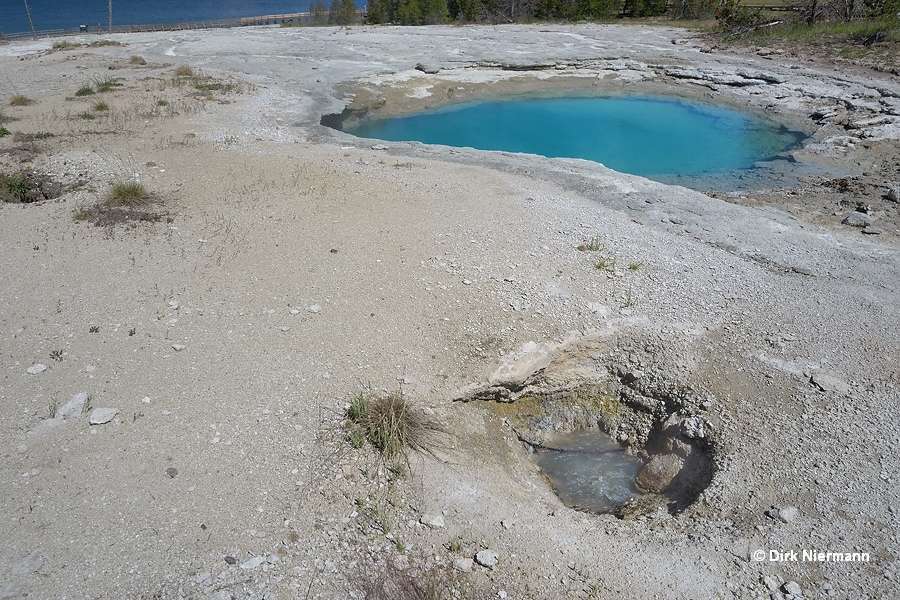West Thumb Geyser Basin, Lower Group
The Lower Group is the only accessible thermal area of West Thumb Geyser Basin. It encompasses mainly hot pools, some paint pots, and also geysers. Unfortunately geyser activity in the Lower Group has declined since the 1970s. However, in the meantime a few energy surges led to a short-time revival of some geysers and will hopefully do so in future.
The eight-shaped loop trail starts at the southwestern corner of the thermal area. Probably the first feature to catch the eye is a small, unnamed Paint Pot. It seems to be a scattered member of the Thumb Paint Pots further east.
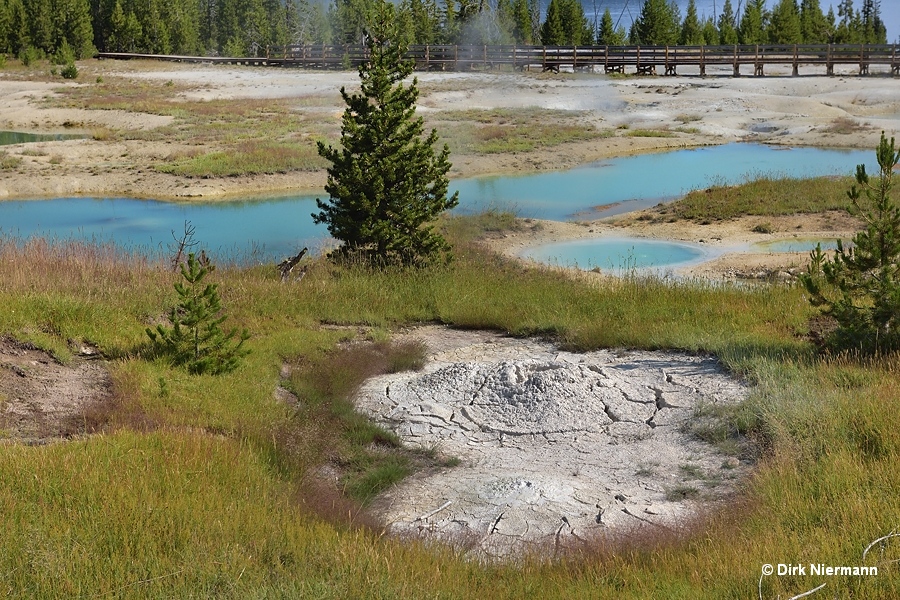
Downslope a number of blue hot pools, called Mimulus Pools, appear. In summer they often exhibit a relatively low water level and some may be nearly dried up. The single pools are identified by the code from the RCN database.
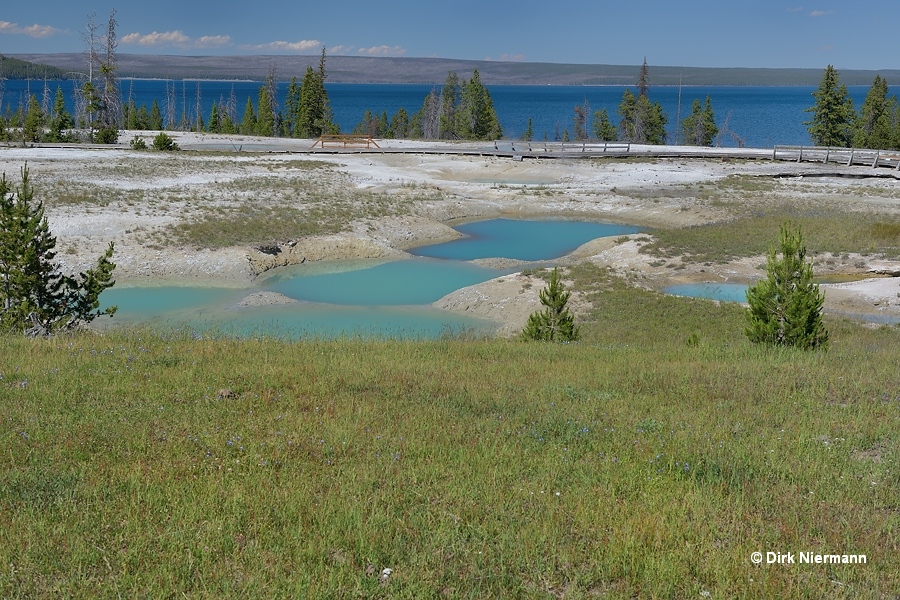
Northernmost member of the Mimulus Pools is WTLGNN018.
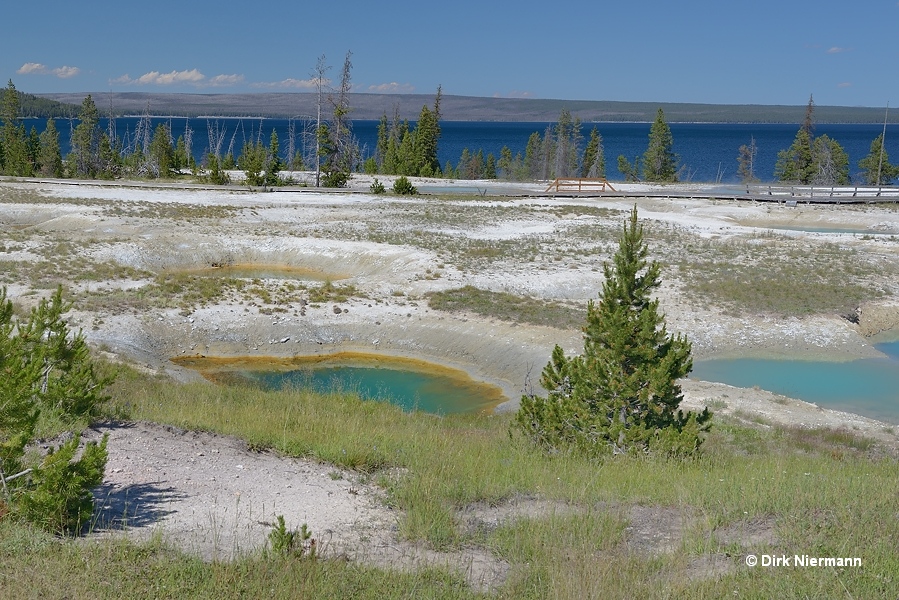
To the north of the Mimulus Pools the Painted Pools adjoin, equaling the Mimulus Pools in virtually every aspect.
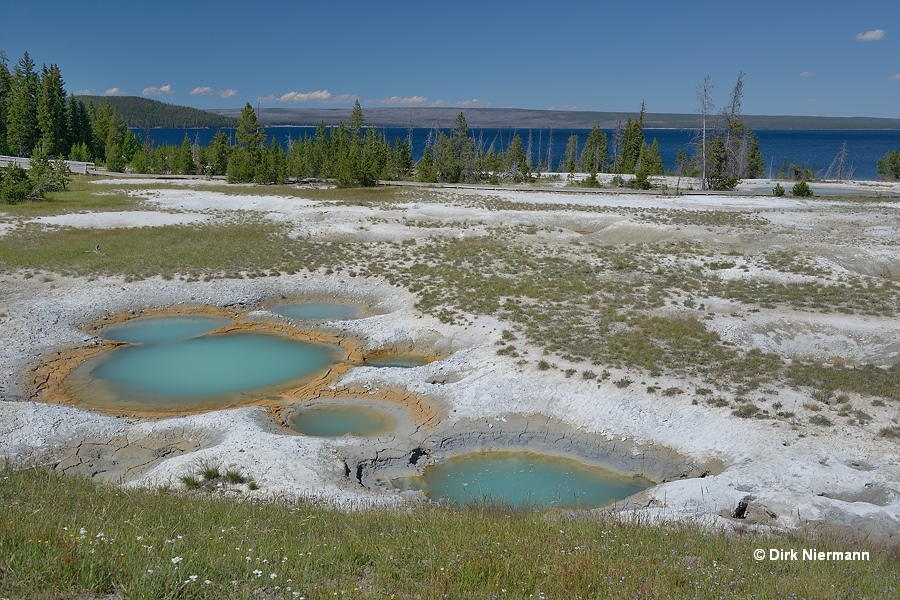
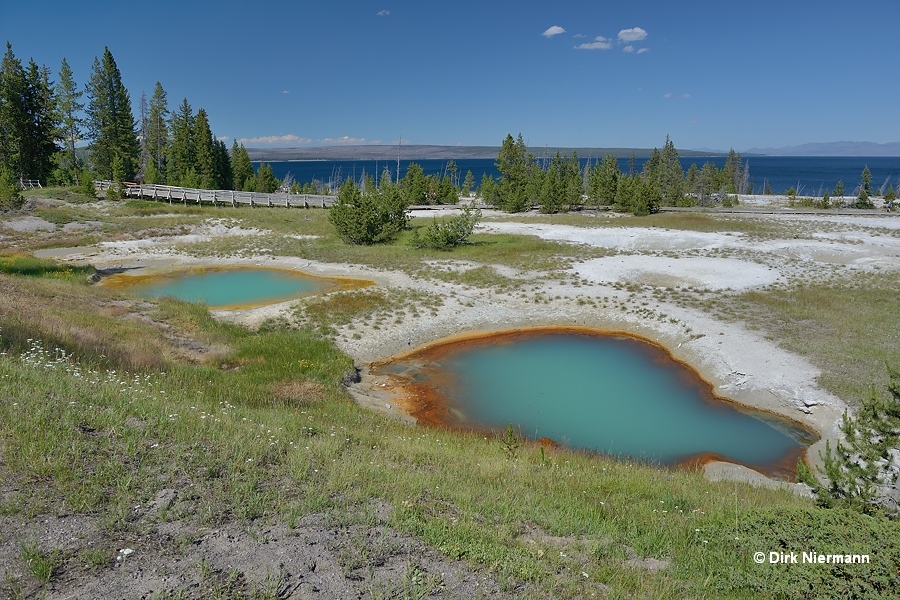
North of the Painted Pools the trail forks and the southern branch loops back to traverse the center of the area. The first feature on the left side is Twin Geysers. With its two vents it is capable of ejecting water jets up to 35 m (120 feet) high and is thereby the largest geyser of West Thumb Basin. The last eruptions have been observed in 1999.
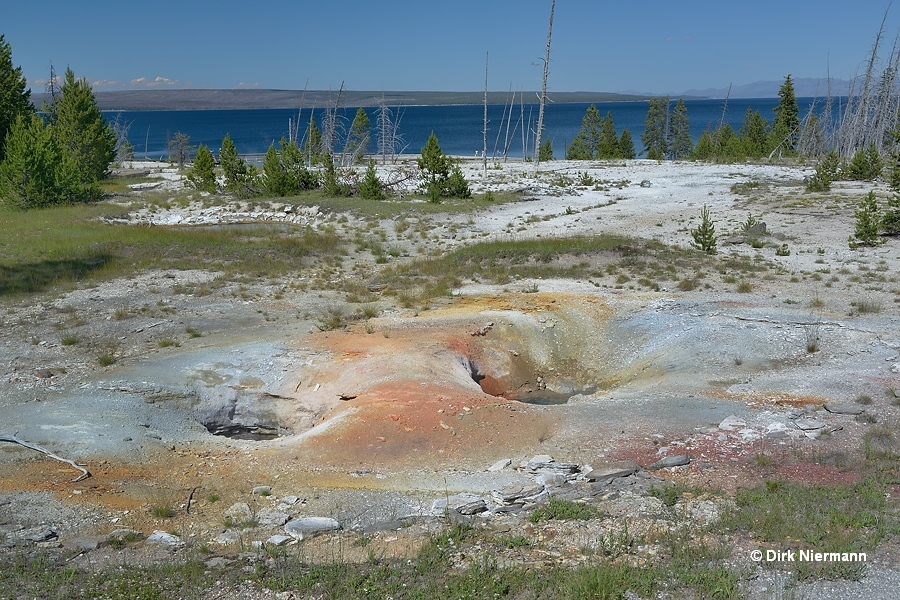
Proceeding south you pass a lot of unimpressive pools and craters until you reach pool WTLGNN048 on the right side, deserving closer attention due to its above-average size.
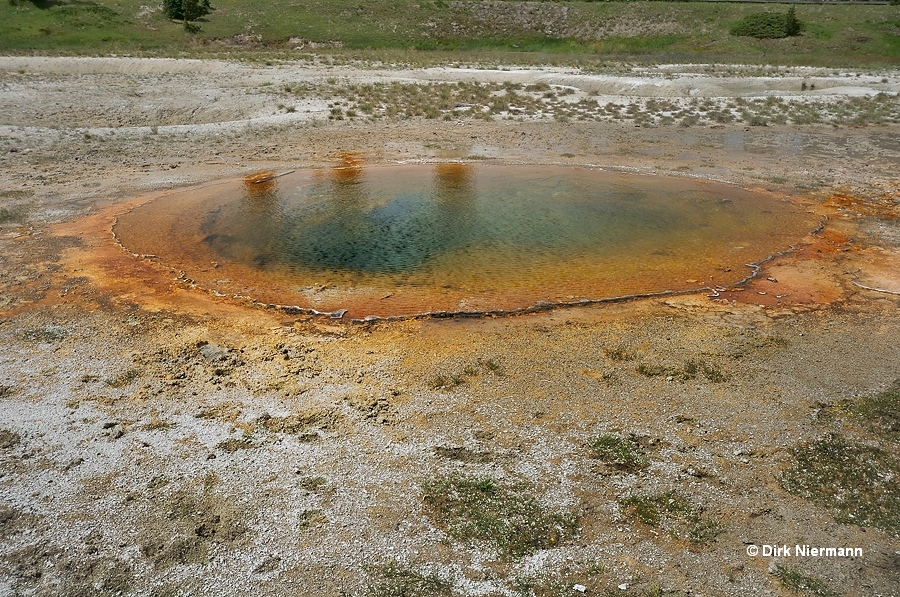
Across the boardwalk from WTLNN048 the stunning but quiet Blue Funnel Spring appears.
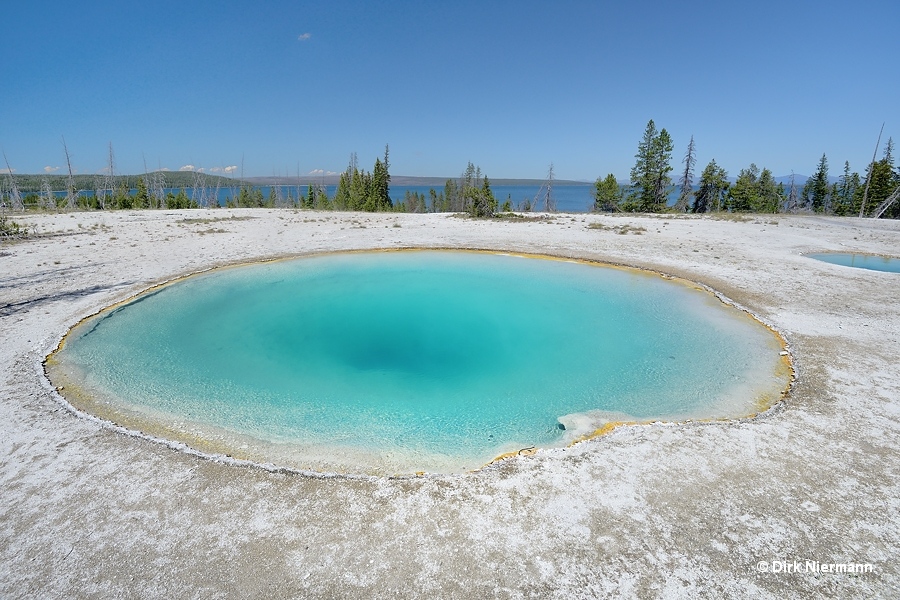
Between Blue Funnel Spring and its neighbor to the south, Ephydra Spring, a little hole is located next to the boardwalk. This is Footprint Geyser (UNNG-WTL-2), making its debut in 2002 with eruptions up to 4 m (15 feet) high. Unfortunately, this is also the end of the story up to now.
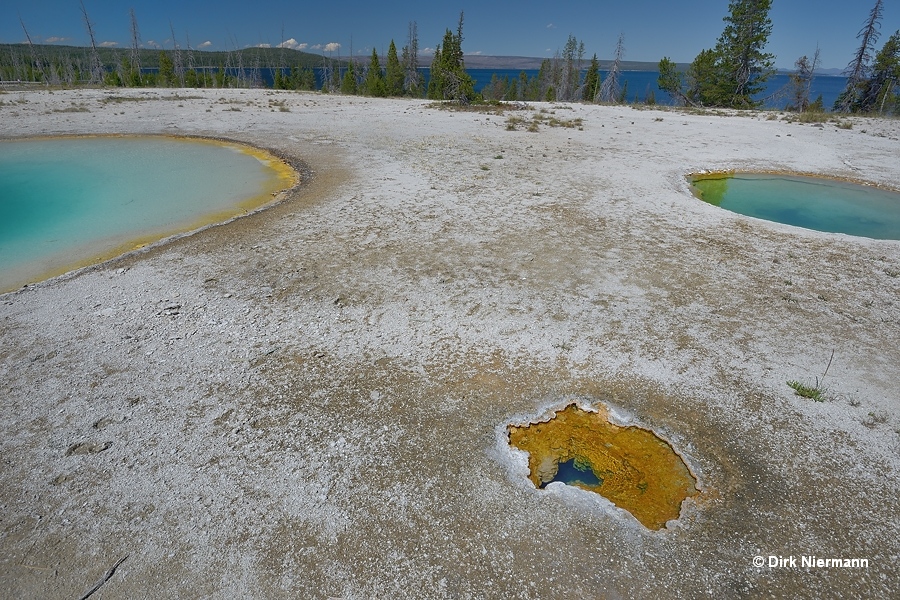
Together with Footprint Geyser also the otherwise quiet Ephydra Spring, named after the Ephydra fly, showed weak spouting activity in 2002.
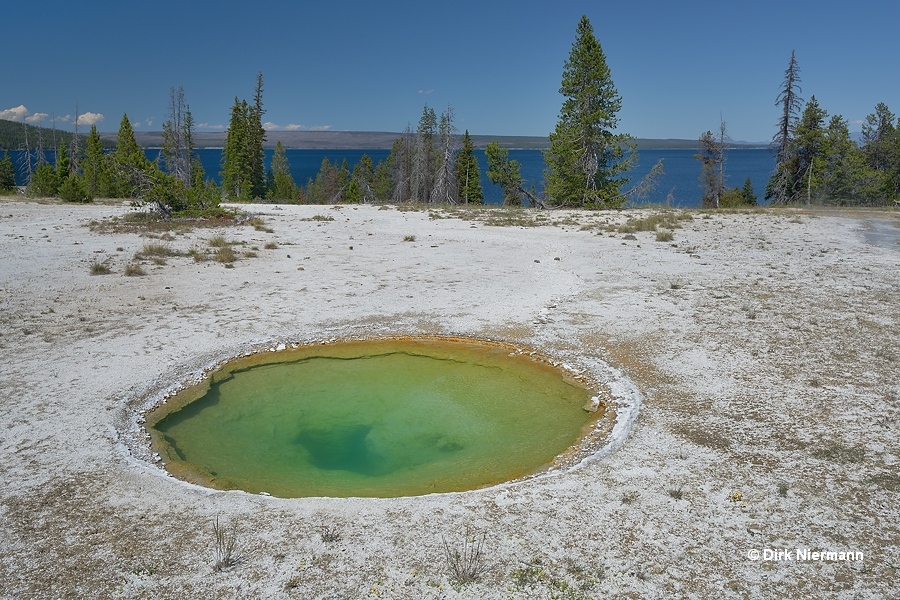
Perforated Pool is adjacent to Ephydra Spring. It got its name from the high number of vents visible on the bottom.
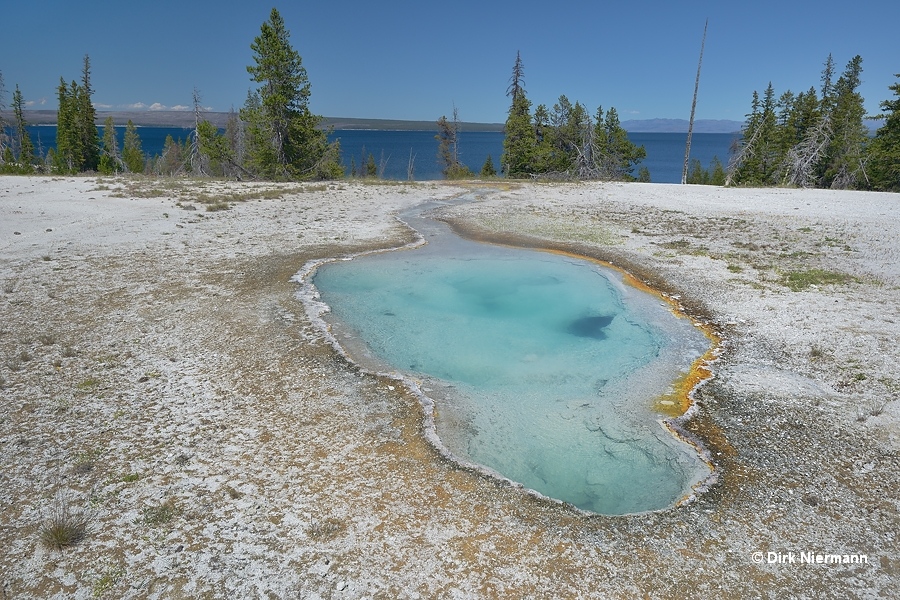
Next to the boardwalk something, what is not far away from being the ugliest pool of Yellowstone, is ignored by most visitors. At least the informal name Oil Slick Pool for WTLGNN075 is fitting well.
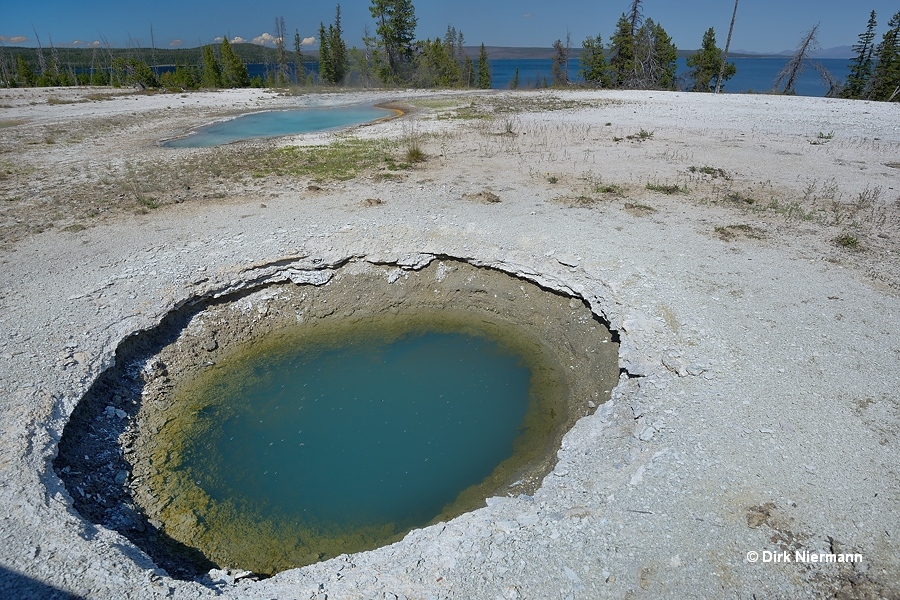
On the right (west) side of the boardwalk Thumb Geyser can be observed. During the rare energy surges it can play up to 3 m (10 feet) high. In 1893 a park employee approached Thumb Geyser at night outside his working hours, apparently to impress two accompanying girls, when the sinter crust close to the spring gave way and the man plunged into hot water. He survived, but his legs were badly scalded.
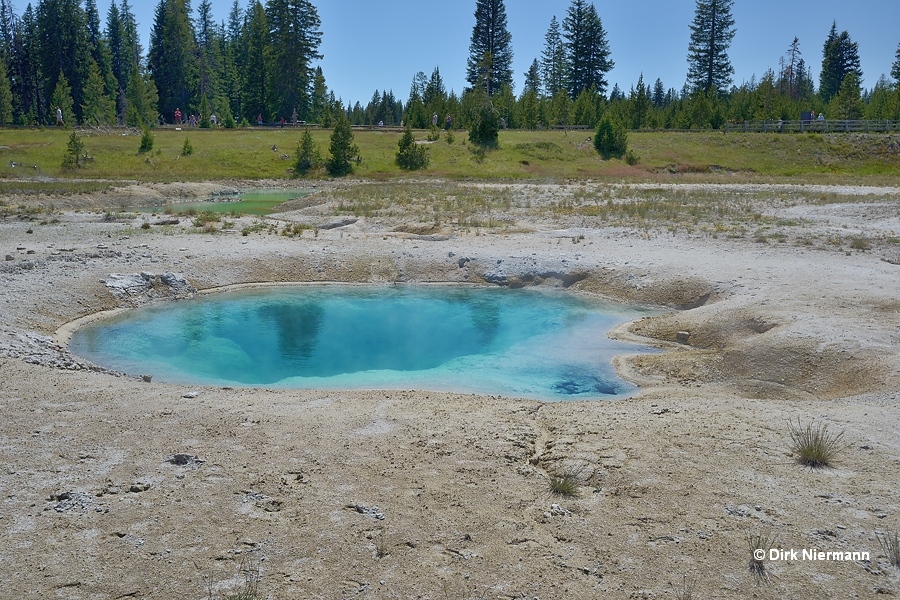
Southeast of Thumb Geyser, Collapsing Pool adjoins. In 1959 the collapse of its sinter rim into the pool was caused by the strong Hebgen Lake earthquake.
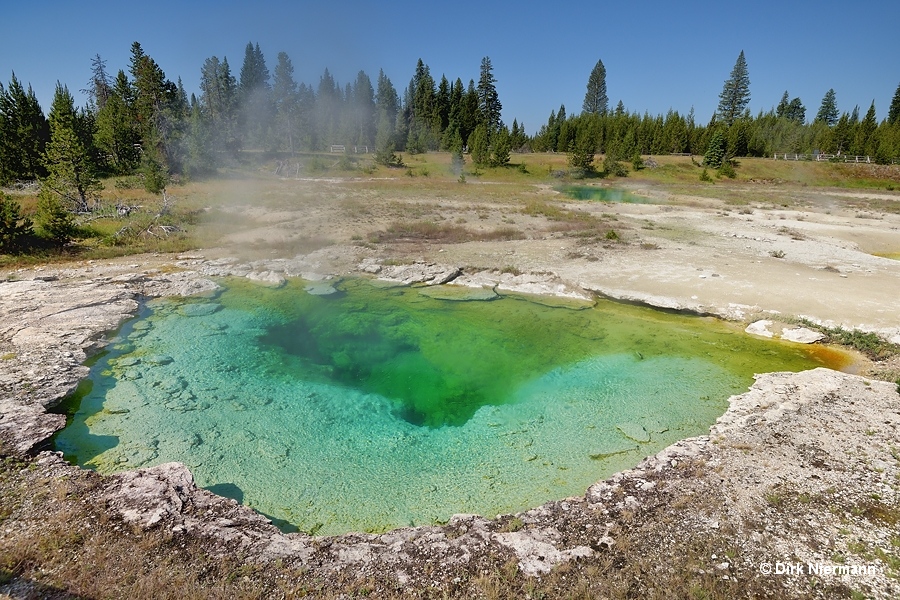
Back to the left side of the boardwalk the next feature is Percolating Spring.
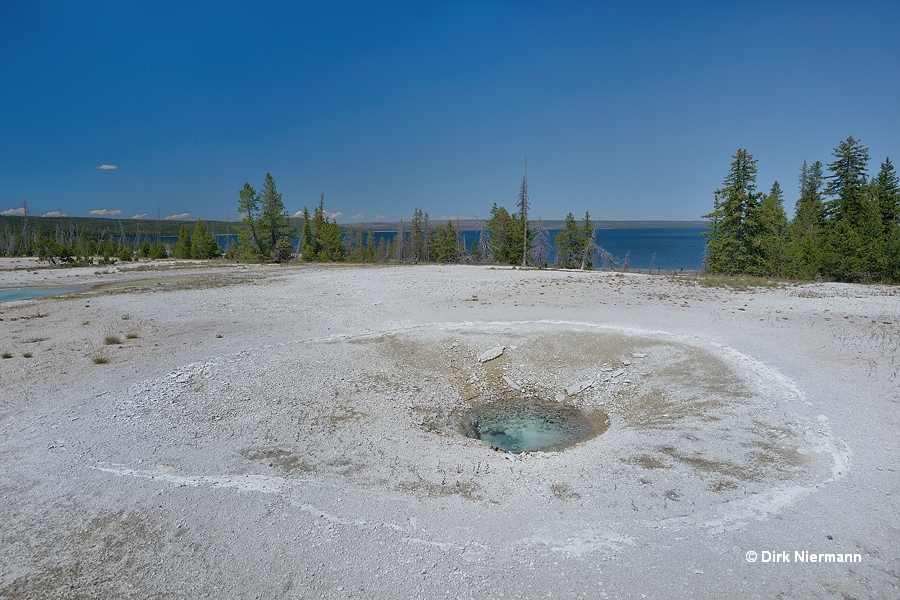
It is not uncommon for Percolating Spring to act as a perpertual spouter from time to time.
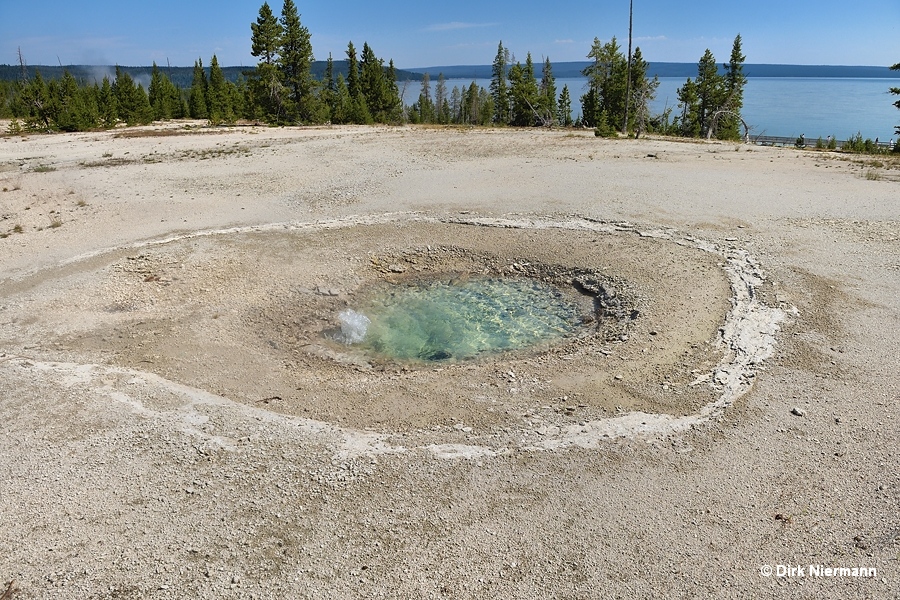
Like many other springs in this area also the next feature in the line-up, Ledge Spring, displays strongly fluctuating water levels over long periods of time.
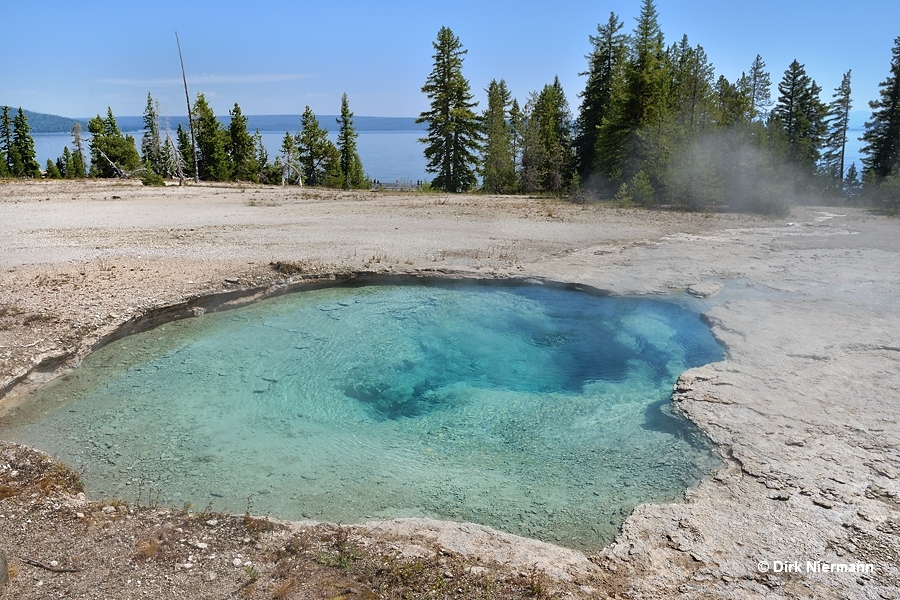
Last in the row before the Paint Pots open up is Surging Spring. Activity consists of a splashing up to 1 m (3 feet) high, but is rarely observed. A small feature between Surging Spring and the boardwalk, which developed at the end of 2010, seems to dry up already (see lower left corner of the photo).
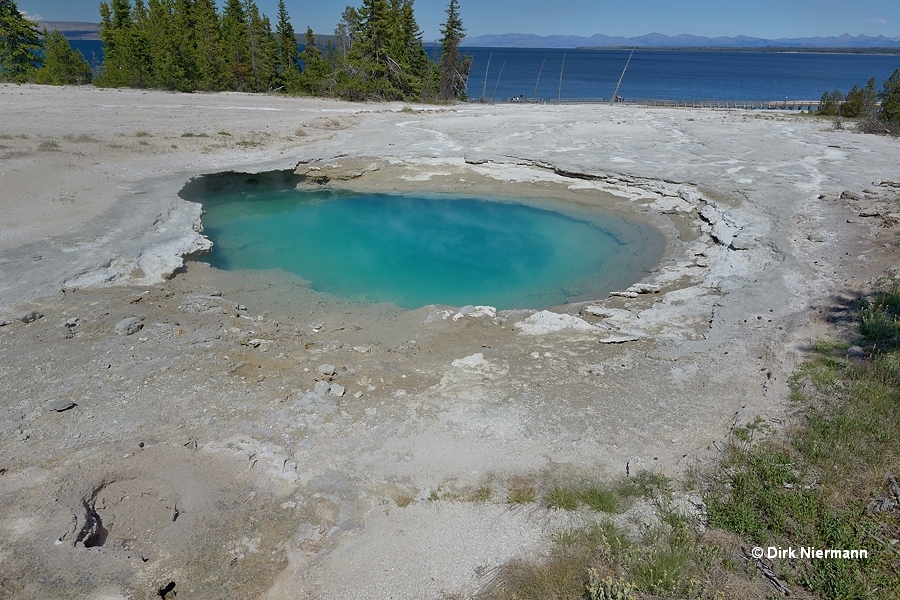
A few feet west of Surging Spring another small satellite spring (WTLGNN078) shows occasional bubbling.
